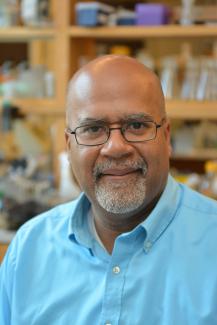Event
Ecology, Evolution, and Virotherapy: Harnessing Viruses to Solve Human Problems
Special Department of Biology Seminar
Paul E. Turner, Ph.D. Yale University

Please note that this seminar will take place on Friday 10/2 at noon (not during our normal thursday seminar time)
The current pandemic is a persistent reminder that pathogenic viruses can have devastating effects on host populations that lack immunity to virus attack. However, this same logic of cellular vulnerability to virus infection underlies the benefits of virotherapy. Here, viruses are used instead to solve human problems, such as harnessing viruses to target cancerous tumors and using bacteriophages (bacteria-specific viruses) to kill antibiotic-resistant bacteria in the human body. Alongside these efforts, it is crucial to elucidate the ecology and evolution of virotherapy, to fully understand how administered viruses may ecologically interact with non-target populations and communities of cells, and whether this causes the therapy to deviate from evolutionary predictions. This talk concerns the evolutionary ecology of new approaches to phage therapy. In particular, naturally-occurring phages can be used because they kill the target bacteria, while predictably selecting for evolution of costly phage resistance (evolutionary trade-offs): reduced virulence and/or increased antibiotic sensitivity. By utilizing virulence factors as receptor binding sites, the phages exert selection for bacteria to evolve phage resistance by modifying (or losing) the virulence factor, potentially reducing bacterial pathogenicity. I present examples of phages that utilize bacterial lipopolysaccharides, efflux-pump proteins, and pili as binding sites, to kill target bacteria while selecting for phage resistance that coincides with useful clinical traits such as antibiotic re-sensitization and reduced tissue inflammation. These in vitro observations are compared to phenotypic, genetic and metagenomics analyses of microbes isolated longitudinally from patient samples before, during and after emergency phage therapy treatments. Throughout, I emphasize how insights from ecology and evolution are critical for developing virotherapy, and for providing valuable research collaborations among basic scientists, clinicians and physicians.
Paul E. Turner
Department of Ecology and Evolutionary Biology, Yale University, New Haven, CT
Microbiology Graduate Program, Yale School of Medicine, New Haven, CT
CLICK HERE TO JOIN THE ZOOM SEMINAR ROOM
